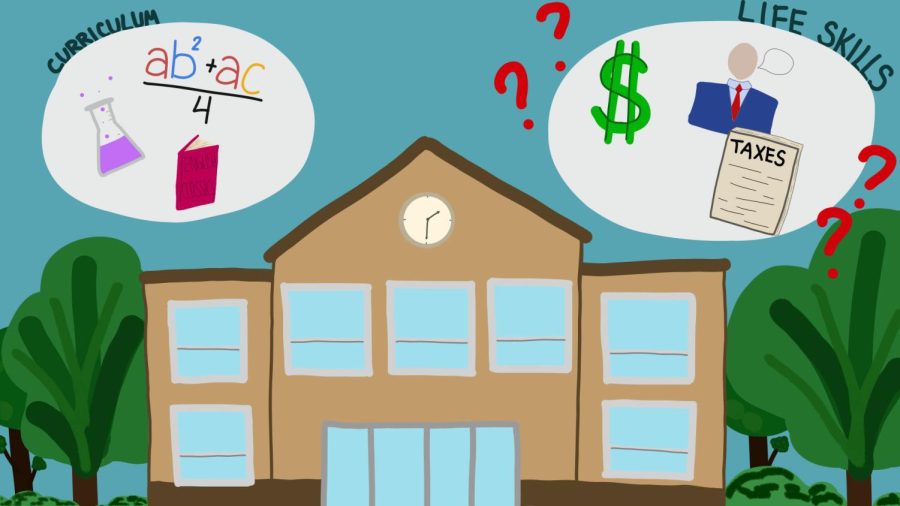Life skills class should be offered and required
Staff Writer Mia Gorman discusses how the school system is failing to equip students with the skills and knowledge they actually need to prepare for life.
March 22, 2022
How did the Magna Carta change the religious landscape in England in 1215? What is the formula for a sulfate ion? What is a gerund?
For people wanting to major in a specific topic, these questions may have some relevance or interest beyond the confines of high school; however, for the average student, these pieces of knowledge will have little impact on their life after 12th grade.
How do I open a line of credit? How do I write a resume? How do I file taxes?
These questions are relevant and important to every high school graduate. If a mandatory class about life skills was incorporated into Algonquin’s curriculum, it would make for a more complete and well-rounded education experience among all students.
During high school, students must take a variety of different required courses ranging from Physics to US History, but graduation requirements fail to incorporate classes that teach real-life skills. While the current core classes are important in creating an academic education, there should be a mandatory class that teaches basic skills such as money management, professional communication and even stress management that will provide real-world benefit to a greater percentage of students.
While various courses in different departments address some of these skills, it’s important for all students to learn these skills to help them prepare for life after high school.
Students receive a good education and leave ARHS with a wealth of academic knowledge, but how often will these skills really be used beyond potential future academic work? After I finished Chemistry sophomore year, I never thought about it again, and as a future non-science major, I do not think I ever will.
These core classes are important because they allow students to explore different topics, learn enriching knowledge and possibly find a passion that they wouldn’t have otherwise, leading to a successful career. I don’t believe our current class requirements should be eliminated, but I do think it’s important to prepare for life in general, not only academic study.
A lot of students graduate with minimal knowledge of how credit cards, taxes, financing and so much more work. These types of financial skills and knowledge will be used daily after high school but are not taught to all students. Much of what I know about money to this day came from my parents. The Financial Literacy class, offered as an optional elective at Algonquin, slightly delves into similar topics like savings, mortgages and investments, but not in-depth.
As mentioned in the Positive Action article “Teaching Life Skills in School,” many students take out loans in college and graduate in an uncertain job market with piles of debt. If high schools took the time to teach about these loans and how they work in-depth, it would help students make more educated decisions when planning their futures.
Additionally, learning effective and proper communication is an essential skill for job interviews, talking to figures of authority and overall connections. When I had my first job interview, I was unprepared. I walked in unsure of what to expect, I was asked questions I had never heard before and I gave poor, choppy responses. Practicing effective communication techniques—eye contact, speaking in a clear voice, careful listening—is valuable in everyday life. And while the Business Communications class teaches oral presentation skills, it is mainly focused around business, not a broader aspect, and students aren’t required to take this course.
Sure, classes that are currently offered as electives teach various life skills in different areas, but not all are not required, and a student would need to take a combination of multiple classes in order to learn all of this information. Economics is a requirement for every student, and it teaches about money skills, but it is ineffective at teaching a wide variety of useful life skills. Creating one singular semester-long class that incorporates many real-world topics would allow students time to learn core classes plus these skills.
It would certainly be difficult to start this cross-curricular course from scratch because the assignments and work would be completely new. However, with creative thinking, these challenges could be overcome to create a class that students find incredibly useful and engaging.
The creation of a mandatory one-semester class that includes a mix of essential skills will allow students to get ready for life after high school. High school is supposed to prepare students for the rest of life and careers beyond academics, and right now it is failing.













